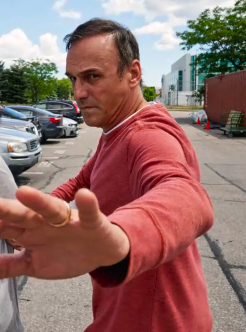Overview
Ted Riordan, Dean of Godolkin University, is the polished, paternal face of Vought’s next-generation indoctrination machine. He doesn’t wear a cape, but his power is absolute: he controls the futures of young Supes by granting or denying their dreams. Beneath his avuncular smile and motivational speeches lies a ruthless enforcer of corporate doctrine — willing to sacrifice students, cover up murders, and weaponize their trauma to maintain Vought’s dominance. He believes Supes are assets, not people, and education is just another form of brand management. His downfall comes not from brute force, but from underestimating the moral awakening of the very students he sought to control. In the end, the Supe Shepherd was dragged down by the flock he tried to brand.
